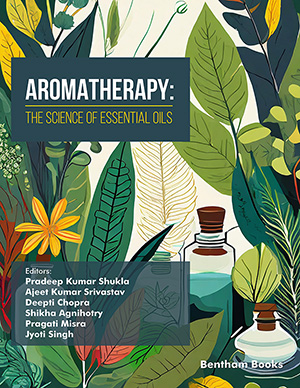
Abstract
Naringin is a naturally obtained chemical from plants that is formed as a secondary metabolite in them. It possesses significant properties that are useful to humans. The primary sources of naringin extract include fruits of the citrus family which are Citrus reticulata, Citrus bergamia, Citrus aurantium, and Citrus paradisi. It belongs to a class of alcohols primarily consisting of a fused ring system which is responsible for its different medicinal properties, as a consequence, it is widely used in the nutraceutical market nowadays. Nutraceuticals are a part of food that provides health benefits by giving supplements to the body; their final extract form is white in color having crystalline properties with a melting point of 83oC and solubility of 1 mg/ml at 40oC. The absorption of nutraceuticals occurs inside the stomach as it requires a specific pH range between 3.5-4.2. After absorption, it gets converted into naringenin in the liver via a cascade of reactions like dehydrogenation, acetylation, and hydrolysis. Several enzymes are responsible for its conversion into an active form which includes cytochrome P-450, and chalcone isomerase. Its bioavailability depends on a variety of factors including disease condition, gastric moiety, pH of absorption site, the presence of other drugs, and many more. It gets metabolized in the liver itself and finally excreted in the urine. It can be tolerated by the body at high doses, but other conditions can cause its toxicity inside the human body. Its primary properties include anti-inflammatory actions, anti-aging properties, antibacterial properties, anti-cancer properties, and obesity issues.
Keywords: Secondary metabolite, Citrus fruits, Nutraceutical, Solubility, White crystalline powder, Anti-inflammatory, Anti-bacterial, Anti-aging, Anti-cancer.
[http://dx.doi.org/10.1007/s11095-008-9793-y] [PMID: 19067124]
[http://dx.doi.org/10.1159/000444262] [PMID: 26872264]
[http://dx.doi.org/10.1155/2013/162750]
[http://dx.doi.org/10.1016/j.jpba.2012.06.023] [PMID: 22901760]
[http://dx.doi.org/10.1016/S0024-3205(01)01491-6] [PMID: 11895099]
[http://dx.doi.org/10.1007/978-1-4615-5335-9_13] [PMID: 9781303]
[PMID: 10859150]
[http://dx.doi.org/10.1007/978-1-4615-4973-4_7]
[http://dx.doi.org/10.1038/clpt.1993.195] [PMID: 8275614]
[http://dx.doi.org/10.1097/00005344-200211000-00014] [PMID: 12409985]
[http://dx.doi.org/10.1016/j.atmosenv.2011.12.009]
[http://dx.doi.org/10.1080/13880209.2017.1300175] [PMID: 28283004]
[http://dx.doi.org/10.3945/jn.110.136317] [PMID: 21490288]
[http://dx.doi.org/10.1161/01.HYP.26.6.869] [PMID: 7490142]
[http://dx.doi.org/10.1124/pr.114.010249] [PMID: 26084539]
[http://dx.doi.org/10.1186/s12985-018-0945-3]
[http://dx.doi.org/10.1021/acs.jmedchem.7b00229] [PMID: 28244745]
[http://dx.doi.org/10.1093/mutage/gen045] [PMID: 18755759]
[http://dx.doi.org/10.1111/1440-1681.12775] [PMID: 28453191]
[http://dx.doi.org/10.1002/bmc.1090] [PMID: 18823075]
[http://dx.doi.org/10.1055/s-0034-1368351] [PMID: 24710903]
[http://dx.doi.org/10.3390/ijms17071028]
[http://dx.doi.org/10.1161/CIRCRESAHA.111.247866] [PMID: 22723221]
[http://dx.doi.org/10.3390/ijms231911370]
[http://dx.doi.org/10.1155/2022/8244340]
[http://dx.doi.org/10.1155/2014/732980] [PMID: 25574182]
[http://dx.doi.org/10.3390/ijms17030327]
[http://dx.doi.org/10.1016/j.jpba.2005.07.031] [PMID: 16406442]
[http://dx.doi.org/10.1016/j.vaccine.2015.09.108] [PMID: 26475445]
[http://dx.doi.org/10.1039/C6RA16640G]
[http://dx.doi.org/10.1016/S0921-8777(99)00074-9] [PMID: 10812333]
[http://dx.doi.org/10.3892/ol.2016.4793] [PMID: 27446443]
[http://dx.doi.org/10.1248/bpb.28.527] [PMID: 15744083]
[http://dx.doi.org/10.1515/aiht-2016-67-2708] [PMID: 27092635]
[http://dx.doi.org/10.1016/j.jdiacomp.2012.06.001] [PMID: 22809898]
[http://dx.doi.org/10.1016/j.pbb.2014.11.002] [PMID: 25449356]
[http://dx.doi.org/10.7150/ijms.8.295]
[http://dx.doi.org/10.3390/molecules16021471]
[http://dx.doi.org/10.1016/j.fitote.2010.10.014] [PMID: 21056640]
[http://dx.doi.org/10.1007/s10068-018-0372-7]
[http://dx.doi.org/10.3945/ajcn.116.149898] [PMID: 28747329]
[http://dx.doi.org/10.1186/1475-2859-11-155] [PMID: 23216753]
[http://dx.doi.org/10.1016/j.biotechadv.2018.11.002] [PMID: 30414914]
[http://dx.doi.org/10.1186/s12934-015-0373-7]
[http://dx.doi.org/10.1016/j.ymben.2016.10.019] [PMID: 27810393]
[http://dx.doi.org/10.1371/journal.pone.0101492]
[http://dx.doi.org/10.1016/j.biotechadv.2016.02.012] [PMID: 26946281]
[http://dx.doi.org/10.3389/fpls.2015.00007]
[http://dx.doi.org/10.1016/j.biotechadv.2018.11.005] [PMID: 30458225]
[http://dx.doi.org/10.3892/ijmm.2017.3301] [PMID: 29207043]
[http://dx.doi.org/10.3390/ph12010011]
[http://dx.doi.org/10.1002/mnfr.201600934]
[http://dx.doi.org/10.1016/j.neuropharm.2016.02.019] [PMID: 26907804]
[http://dx.doi.org/10.3184/174751915X14379994045537]
[http://dx.doi.org/10.1111/j.1745-4514.2011.00561.x]
[http://dx.doi.org/10.1093/jn/131.2.235] [PMID: 11160539]
[http://dx.doi.org/10.1038/srep41864]
[http://dx.doi.org/10.7717/peerj.2602]
[http://dx.doi.org/10.1080/16546628.2017.1296675]
[http://dx.doi.org/10.3945/ajcn.114.090282] [PMID: 25332336]
[http://dx.doi.org/10.1038/sj.ejcn.1602543] [PMID: 17047689]
[http://dx.doi.org/10.1016/j.jchromb.2017.07.015] [PMID: 28711784]
[http://dx.doi.org/10.1002/mnfr.201600315] [PMID: 27488098]
[http://dx.doi.org/10.1016/j.foodres.2016.03.028]
[http://dx.doi.org/10.1016/j.lfs.2018.07.017] [PMID: 30021118]
[http://dx.doi.org/10.1186/s40880-017-0217-4]
[http://dx.doi.org/10.3390/nu9050502]
[http://dx.doi.org/10.2188/jea.JE20100084] [PMID: 21389640]
[http://dx.doi.org/10.1093/ajcn/76.3.560] [PMID: 12198000]
[http://dx.doi.org/10.1161/STROKEAHA.111.637835] [PMID: 22363060]
[http://dx.doi.org/10.1080/10408398.2014.901292] [PMID: 25880021]
[http://dx.doi.org/10.1016/j.amjhyper.2005.05.021] [PMID: 16202862]
[http://dx.doi.org/10.3389/fphar.2015.00299]
[http://dx.doi.org/10.1155/2021/6016874]
[http://dx.doi.org/10.1111/dom.13868] [PMID: 31468636]





























